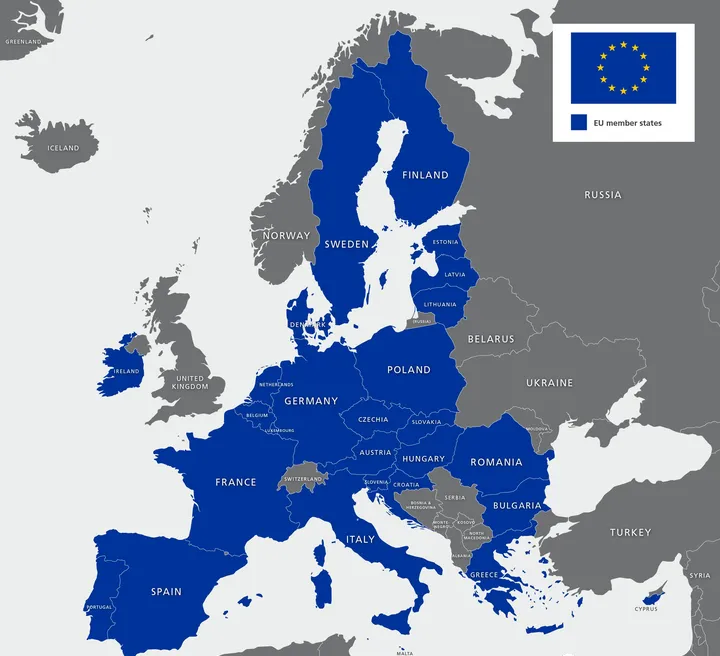
EU CE Certification: LVD, EMC, and RED Directives
Classification of EU CE certification Directives:
CE certification is the European Conformity mark for the European common market. It classifies various directives based on different functionalities and uses. The common directives include:

- LVD (low voltage directive 2014/35/EU)
- EMC (Electromagnetic Compatibility Directive 2014/30/EU)
- RED (Radio Equipment Directive 2014/53/EU)
General electronic products and home appliances usually undergo CE certification for these three directives. Products without wireless functions follow the LVD or EMC directives, while products with wireless functions additionally require the RED directive.
lvd directive:
The LVD directive primarily focuses on product safety, ensuring that the product does not pose any harm to users or the environment during normal or intended use. This directive mandates that products comply with a series of safety standards, covering aspects such as rated voltage range, insULation performance, electric shock prevention, and electrical thermal protection.
EMC Directive:
The EMC directive concerns electromagnetic compatibility, meaning the product should not interfere with other devices and should not be affected by interference from other devices. Products should maintain stable operation during normal use without impacting other equipment. This directive requires products to meet specific electromagnetic compatibility standards.
RED Directive:
The RED directive mainly addresses the spectrum efficiency and electromagnetic compatibility of radio equipment. As a directive for wireless devices, RED mandates that products comply with relevant EU technical standards and regulations, including radio transmission performance and electromagnetic interference.
How to Determine Which Directive Applies to Your Product:
1. All electrically powered products must comply with the EMC (Electromagnetic Compatibility Directive 2014/30/EU).
2. Based on the power supply method and operating voltage:
- Products using AC power with a rated voltage between 50V and 1000V, or DC power between 75V and 1500V, must comply with the LVD directive.
3. Products with wireless functions such as Bluetooth, WiFi, NB-IoT, 2G, 3G, 4G, 5G, RFID, etc., must comply with the EMC directive.
Note: If the product meets the requirements of all three directives, it must comply with them. The new RED directive (2014/53/EU) includes testing requirements for both LVD and EMC, so products with wireless functions only need to comply with the RED directive to meet CE certification requirements. The report will reflect safety and emc testing items.
Differences in Testing Items for Different Directives:
lvd testing Items:
1. Marks and instructions
2. Protection against access to live parts
3. Starting of motor-operated appliances
4. Input power and current
5. Heating
6. Leakage current and electrical strength at operating temperature
7. Moisture resistance
8. Leakage current and electrical strength
9. Overload protection of transformers and associated circuits
10. Durability
11. Abnormal operation
12. Stability and mechanical hazards
13. Mechanical strength
14. Construction
15. Internal wiring
16. Power connections and external flexible cords
17. External wire terminal connections
18. Grounding measures
19. Screws and connections
20. Clearances, creepage distances, and solid insulation
21. Resistance to heat and fire
EMC Testing Items:
1. Terminal disturbance voltage
2. Disturbance power
3. Radiated disturbances
4. Harmonic current
5. Voltage fluctuations and flicker
6. Electrostatic discharge immunity
7. Electrical fast transient/burst immunity
8. Surge immunity
9. Voltage dips and short interruptions immunity
10. Continuous disturbance
11. Radiated electromagnetic field immunity
12. Conducted disturbances induced by RF fields immunity
RED Testing Items:
1. Output power, duty cycle, transmission sequence, transmission gaps, medium usage
2. Power spectral density
3. Cumulative emission time, frequency occupancy time, and frequency hopping sequences
4. Frequency hopping channel separation
5. Adaptive mechanisms
6. Occupied bandwidth
7. Out-of-band emissions
8. Transmitter spurious emissions
9. Receiver spurious emissions
10. Blocking performance
CE Certification Documentation:
1. Application form
2. User manual
3. Circuit diagram
4. Structural diagram
5. List of components
6. Fixed frequency software and operation instructions (required for wireless functions)
7. For non-wireless products, provide 1-2 complete units; for wireless products, provide 3 complete units and 1 fixed frequency sample.
The certification process takes approximately 7 working days for non-wireless products and 2-3 weeks for wireless products.
Additional Notes:
Products exported to the EU may also need to meet the following tests or certifications:
1. EU RoHS environmental test report
2. Battery compliance with IEC 62133 or other battery testing requirements for products with batteries
3. Transportation report certification: UN 38.3, MSDS (usually provided by battery manufacturers), and complete machine transportation identification
4. ERP compliance for products with adapters (EU 2019/1782 regulation)
Note: When designing a complete machine, consider purchasing certified components such as power adapters with CE, ERP, and ROHS certifications. This will streamline the ce certification process for the complete machine. Similarly, batteries can be purchased with certifications to avoid the need for additional battery certification.
China JJR is an IEC 17025 accredited laboratory, offering EU CE certification, E MARK certification, RoHS certification, reach certification, ERP certification, WEEE certification, and more. Contact us for a quote.
Email:hello@jjrlab.com
Write your message here and send it to us
 Accelerated Ageing Test
Accelerated Ageing Test
 IP Ingress Protection Testing
IP Ingress Protection Testing
 How Does a Product Get an Energy Star Label
How Does a Product Get an Energy Star Label
 Is ROHS part of UL the same
Is ROHS part of UL the same
 What is Protection Class EN 60529?
What is Protection Class EN 60529?
 IP69 Certified Protection
IP69 Certified Protection
 California Energy Commission Testing Lab
California Energy Commission Testing Lab
 What Does the Canadian IC Mark Mean?
What Does the Canadian IC Mark Mean?
Leave us a message
24-hour online customer service at any time to respond, so that you worry!




